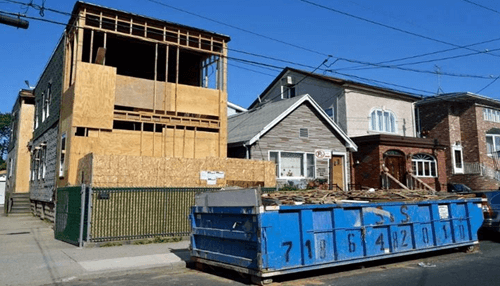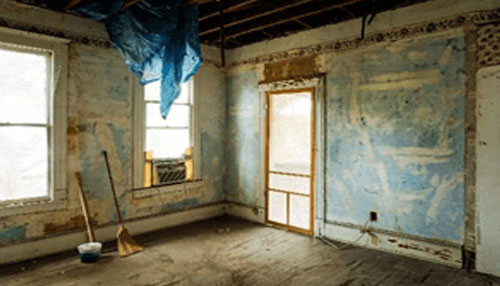Over the last decade, it has become an increasingly popular way to generate income, and frankly, it’s not hard to see why. Making a handsome profit in exchange for a comparatively small initial investment holds a certain appeal to people looking to generate a lot of income in a short span of time. However, while some house flippers are able to make consistently healthy profits, others frequently encounter costly issues. If you’ll soon be flipping your first home, taking the following tips to heart can help you avoid a lot of the aforementioned issues.
Have the Property Thoroughly Inspected
It’s no secret that many homes that get flipped have outstanding problems. After all, there’s a reason they sport such comparatively low price tags. However, even if the seller is upfront about any problems with the property, it’s entirely possible that there are issues this person simply isn’t aware of. With this in mind, take care to have any property you’re thinking about investing in thoroughly inspected before proceeding to finalize the purchase.
But who can help with these inspections? Choose an experienced electrician to inspect your entire electrical system for signs of wear, loose connections, overheating, and safety hazards. This professional can suggest upgrades or modifications to meet current and future electrical needs.
Foundation inspections evaluate the building’s structural integrity. Inspectors look for cracks in foundation walls and floors, indicating settlement, soil movement, or water pressure. On the other hand, plumbers assess pipes, faucets, fixtures, water heaters, and sewage systems to find leaks, corrosion, blockages, or issues. They also check drainage systems for effective waste removal.
Roof inspections are crucial for identifying and fixing potential issues compromising the structure’s protection against the elements. Roofers look for sagging, damaged trusses, or structural problems. Attic insulation is inspected for energy efficiency.
Buyers prefer properties without pest issues. A positive pest inspection report is valuable marketing, attracting more potential buyers and easing sales. It also documents the property’s condition during the sale, preventing disputes between buyers and sellers over pre-existing pest issues.
When preparing to flip a property, conducting a meticulous outdoor inspection and focusing on landscaping and tree care is also important. Maintain a healthy lawn, consider fire safety, and adhere to local regulations. Tree removal or pruning may be necessary, and consulting arborists for professional advice is recommended for overall property appeal and safety.
If new problems are discovered while renovations are underway, you may wind up spending a lot more money than you’d originally intended, particularly if these issues pertain to plumbing, electricity, or general structure.
Having a property inspected by relevant professionals in advance of purchase can provide you with a solid idea of what to expect renovation-wise and enable you to budget accordingly. Furthermore, spending a little bit of money on inspections stands to save you a fortune in the long run, as the results of these inspections may ultimately prevent you from making unwise investments.
Research Property Values in the Area
If you’re not going to see a sizable return on your initial investment, there isn’t much point in flipping houses. While house-flipping can be a great way to generate large amounts of income within relatively short timeframes, renovating these homes can cost a considerable sum. So, unless you’re fairly certain you’re going to recoup your investment several times over, a property probably isn’t worth the time, resources, and manpower that flipping it will entail.
When perusing potential flips, take care to research property values in the area. If the amount for which a freshly flipped house can realistically be expected to sell is barely more than what it’s currently selling for, you’d do well to direct your attention to other properties. This step is particularly crucial for everyone asking themselves, “How much can you make flipping houses?”
Set Aside Funds for Unforeseen Emergencies
If you’ve ever watched a house-flipping show on television, you’re likely aware that unforeseen emergencies pop up with relative regularity. In some cases, this is due to properties being in worse condition than initially believed. Other times, problems arise as a result of the overall scale of renovations.
So, even if you have no reason to believe that problems will occur throughout the flipping process, make sure to set aside funds for emergencies. If nothing goes wrong, fantastic—you’ll have some extra money on hand. Conversely, if problems do come about, you won’t have to fret over not having sufficient resources to address them.
Stick with Contractors You Trust
Even if you’re a seasoned handyman, plumber, electrician, or carpenter, flipping your first home isn’t a one-person job. In order to properly renovate a home expediently, you’ll need to enlist the aid of seasoned contractors and search for affordable concrete resurfacing in Tampa. Of course, not every contractor you work with is going to be a good match, which is why it’s important to maintain contact with the ones with whom you enjoy working the most. Additionally, to reduce your chances of giving your business to the wrong contractors, take care to consult various consumer feedback sites and apps before giving someone your business.
Whether you want to make a few simple modifications to how your area looks and functions or you’re considering undertaking a major remodel that would entail completely rebuilding the kitchen, kitchen remodeling Maryland can help.
Many people have built lucrative careers out of flipping your first home. Even if you’re not interested in turning house flipping into your full-time occupation, it can be a great way to generate additional income and facilitate financial security. Of course, this isn’t to say that every foray into house flipping is successful. In fact, if you jump into flipping your first home without doing your homework, you stand to lose quite a bit of time and money. So, if you’ve been thinking about trying your hand at flipping your first home, make sure to tend to the preparations discussed above.




